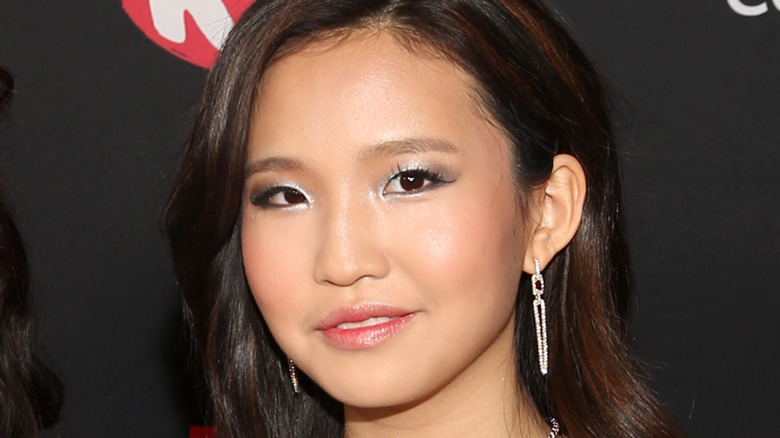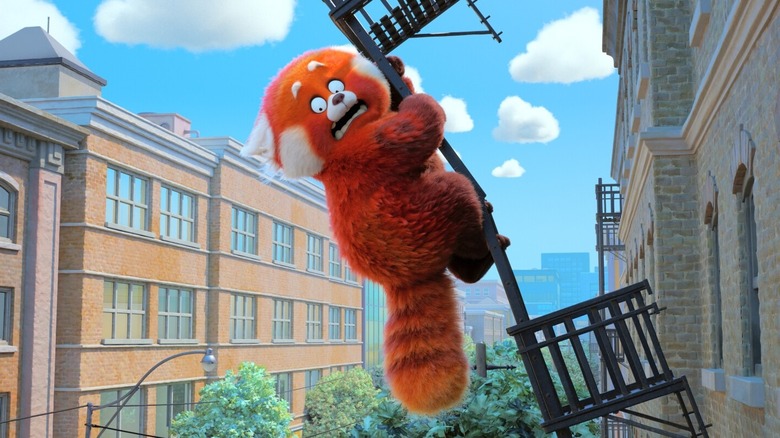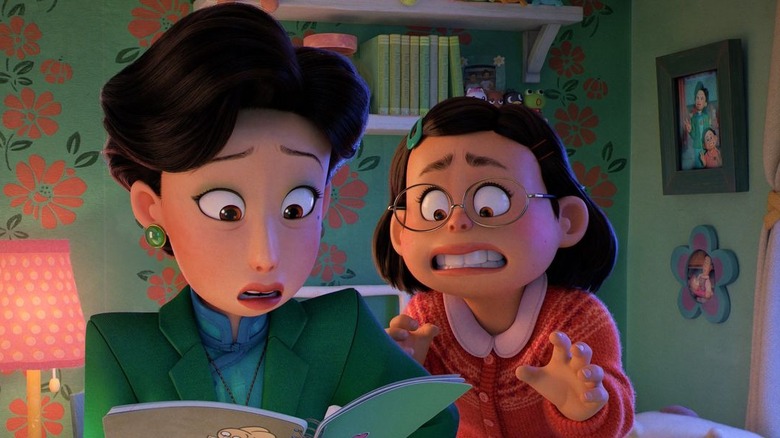Sandra Oh And Rosalie Chiang Speak On Turning Red And Asian Representation In Hollywood - Exclusive Interview
This interview contains minor spoilers for "Turning Red."
A new Pixar film can only mean one thing — it's time to get ready to cry and call your parents to tell them how much they mean to you.
"Turning Red" is very much a Pixar film for how emotionally mature it is for a children's movie. It also breaks the mold in more ways than one. For starters, the protagonist is a 13-year-old Chinese-Canadian girl who's pretty sure she knows exactly what she wants to be in life. However, things take a turn when she discovers an old family tradition where the women turn into giant red pandas when they undergo extreme emotions.
It's a heartwarming film that's great for the whole family, no matter how old you are. Young kids and their parents alike have lessons they can learn from this movie, and it's all thanks to the exceptional voiceover performances from the two leads: Rosalie Chiang as Mei Lee and Sandra Oh as her mother, Ming Lee.
Looper had the chance to speak exclusively with the two actresses for them to talk about how they made the characters their own and what it means for a film like this to come out at this time.
Drawing from real life to find their characters
If you could actually turn into a giant red panda, what's the first thing you would do?
Rosalie Chiang: I would find an open field and run. Test the limits of the panda.
Sandra Oh: I would do probably what Mei does near the end of the film, where you see her both as a panda and herself, running on the tops of the houses in the buildings in Toronto. Running on the tops and jumping buildings. I really love that moment. It's a real moment of freedom for her.
Did you draw from any personal experiences from your lives to help inform your characters?
Chiang: Oh, definitely. I started recording for Mei when I was 12. 12 to 16. I was in that age range of experiencing puberty, and changes, and messiness, all while Mei was. Yes, many experiences, especially the mother-daughter relationship, is something that's very similar. I drew a lot from my own experiences with my mother and our changing relationship.
Oh: I guess, for me, to represent the parents in this film — because the film is about Mei — but to represent Ming well, I absolutely drew from my own experience. The experience of loving your child, and then having to let them go, is a very difficult part about parenting.
Asian representation in media
Sandra, you're very active in the Asian-American community. How important is it to continue telling positive Asian-American stories like "Turning Red" and "Raya and the Last Dragon?"
Oh: I find this question actually interesting and tricky to answer. How important is it? How important is existing? It's important.
I've spent my entire career to bring truth and perspective, mostly truthfully, in a creative way. That is the base point for me — encouraging the next generation to have space for their voice and storytelling. It was really, really great. Domee Shi, who is our director, she is a millennial. She's a Chinese-Canadian. Julia Cho, who's our co-writer, and then Lindsey Collins, all these women's perspectives, and Asian perspectives, finally having a space ... This movie is a first on a lot of levels. To have an entire Pixar film focused on the inner life of a 13-year-old Chinese-Canadian girl, for me, it's extremely satisfying this deep into my career, to be a part of that.
"Turning Red" is now streaming exclusively on Disney+.


